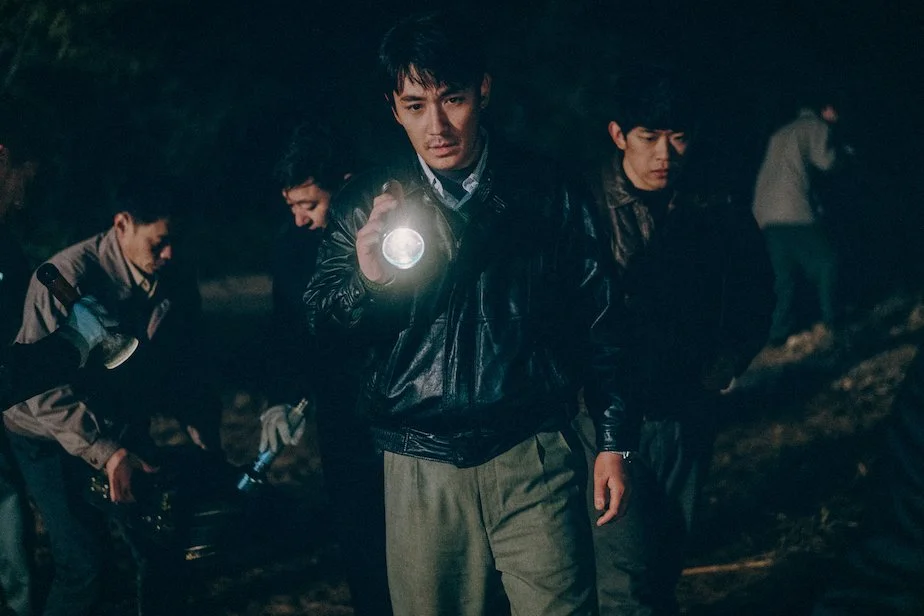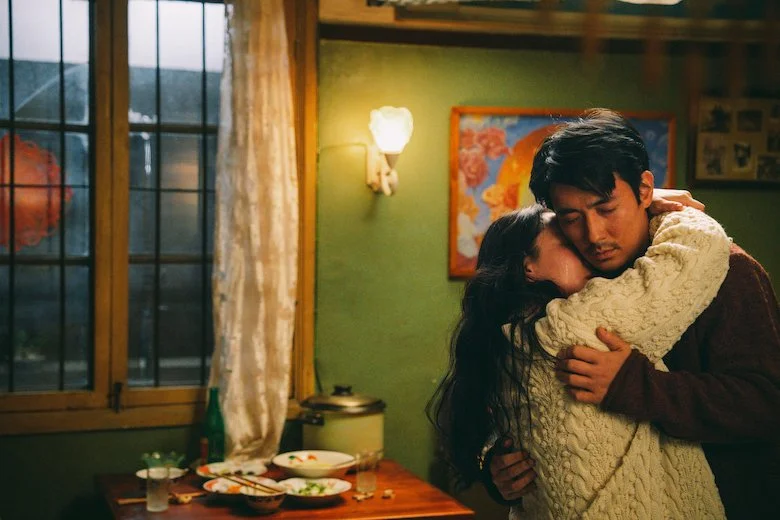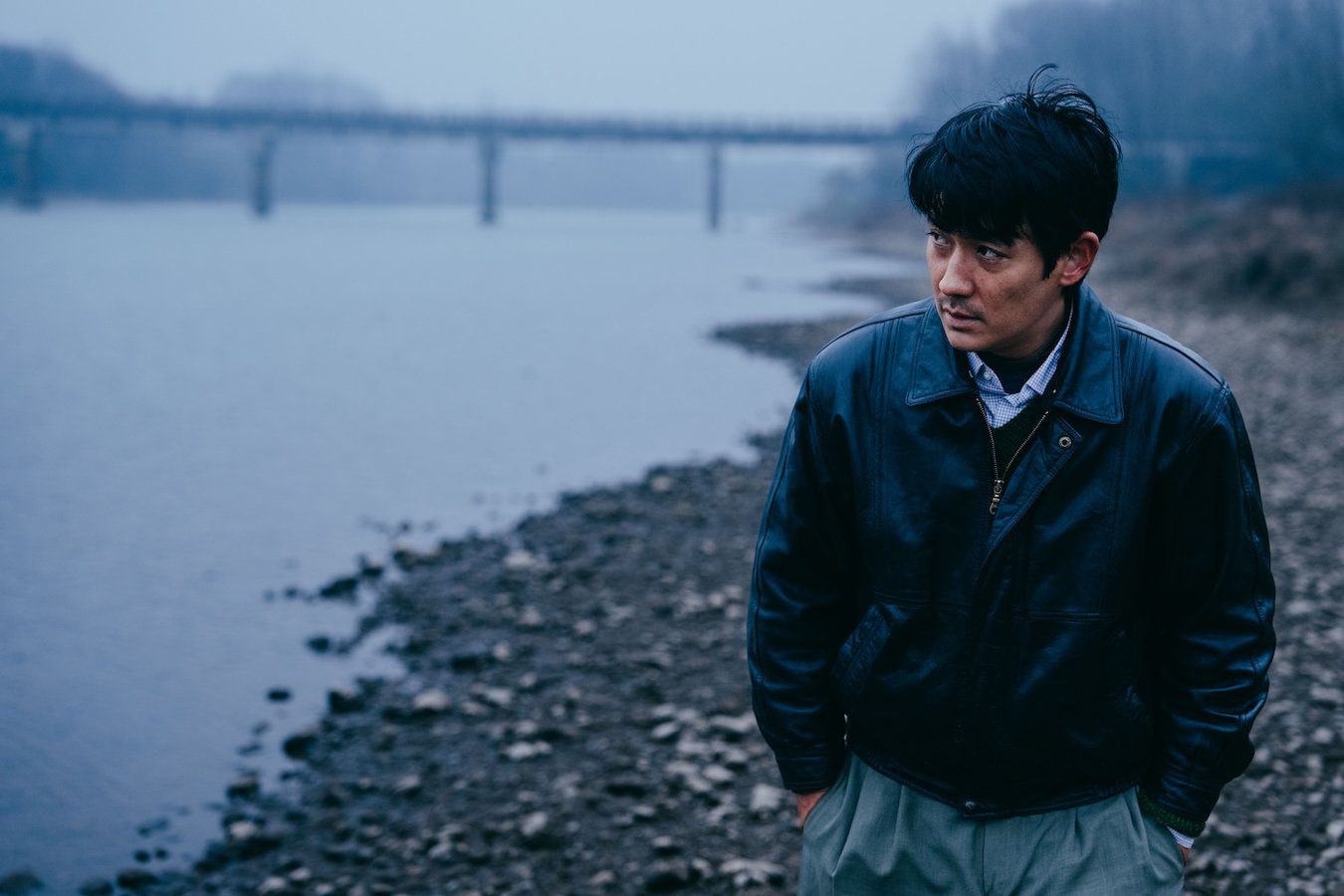Overflowing
A confused character and a confused story are very, very different things.
Only The River Flows
Director: Wei Shujun • Writers: Wei Shujun, Kang Chunlei, based on the novel Mistakes by the River by Yu Hua
Starring: Zhu Yilong, Chloe Maayan, Tong Linkai, Hou Tianlai, Kira Wang
China • 1hr 42mins
Opens Hong Kong December 21 • IIA
Grade: B-
Only The River Flows | 河邊的錯誤 really understands the noir thriller it aspires to being. The one in which a maverick detective, private or otherwise, starts investigating a murder that eventually takes him down a dark path, straight into the secrets lurking just below the surface in the small town – occasionally a naked city with eight million stories. In Ripples of Life director Wei Shujun’s adaptation of Yu Hua’s novel Mistakes By The River, the dick is classic, unreliable narrator Ma Zhe (Zhu Yilong, much better here than he was in Lost in the Stars), and the inciting incident is the death of Granny Four (Cao Yang), a widow in provincial Peishui, who’s befriended a mentally challenged man simply referred to by everyone as The Madman (writer Kang Chunlei). Granny’s murder leads to the slaying of lovestruck poet Hong (Zhishi Moxi) and finally a little boy, all by the river, all assumed to be at the hands of The Madman, who keeps escaping police custody.
That is the tip of a very large, very convoluted iceberg that starts strong enough and goes off the rails in the back half, and not in a good way. The film opens with a nice bit of playacting, when a local kid and (presumably) his friends play cops and robbers in an abanonded building that stops when the building does, to reveal the grimy world outside. In case you don’t quite get the “policing as theatre” reference, Ma and his investigative crew move into an abanoned cinema shortly after that at the suggestion of the pencil-pushing Chief (Hou Tianlai), and set the precinct up on the stage.
Wei has a tendency to reflect on cinema and its constructs in his films – Ripples was about a massive movie star wreaking havoc with a film production in her hometown, Striding Into the Wind was a film school student’s road trip diary – and he stitches that onto noir conventions this time. There are shades of 1970s urban noir thrillers like the surprisingly engaging Stallone vehicle Nighthawks, Bong Joon-ho’s Memories of Murder, Diao Yinan’s superior Black Coal, Thin Ice, and Jia Zhangke’s double bill of A Touch of Sin and Ash is the Purest White all over the place, and for a while it works. Early on Wei and DOP Chengma Zhiyuan (Fire on the Plain), shooting on 16mm film (!!) give Only The River Flows a sheen of simmering anxiety, with social and moral tripwires around every dank corner. Rightly so, because the story unfolds in the tumultuous mid-1990s (gorgeously art directed by Zhang Menglun), after Tiananmen, before China’s economic boom of the 2000s, when the one-child policy was still in effect. When Ma and his pregnant wife, Bai Jie (Chloe Maayan/Zeng Meihuizi, so fabulous in Fruit Chan’s Three Husbands), see the world’s worst OB-GYN and are told the unborn child might have a birth defect, the very real spectre of terminating the pregnancy and trying again looms. One of Ma’s early persons-of-interest in his investigation is Xu Liang (Kira Wang Jianyu), who is most likely trans. Hong might be in an adulterous relationship. The Madman is, well, mad. These are Peishui’s most marginalised citizens.
Up to this point River engages, and the idea that the police just put on a show of justice for society’s most marginalised is thought-provoking. And Ma is nicely isolated from the mainstream: he’s the cop in a cheap leather jacket rather than an official uniform – until he gives in. But my god, the muddle – not confused character psychology, narrative muddle – and the pretentiously arty references to Albert Camus (an on-screen quote from the French philosopher starts the film) and multiple refrains from “Moonlight Sonata” that follow the set-up invite the mind to wander. River was selected for Cannes’ Un Certain Regard, so to suggest something isn’t all that is verboten. But as Ma continues his investigation and we’re supposed to follow his spiral into, what, madness? Wei loses the plot. The trail of breadcrumbs Wei and Kang leave goes nowhere; the dribs and drabs add up to nothing. Ma might have a drinking problem. Xu Liang is probably trans but may “just” be a cross-dresser. Is Ma mad, and is he connected to The Madman somehow? How about his baby? What’s real and what’s not? What does that dream mean? What’s with the geese?
Chinese noir has become a sub-genre unto itself in the past few years, because duh. It’s the perfect tool for analysis and critique, and serves the same function now as it did when it was born in the highly metaphoric Hollywood of the 1940s and ’50s. But there are many, many fine lines separating mystery, ambiguity, nonsense and messaging, and ultimately Wei jumps way, way over all of them in Only The River Flows. It feels less like the confused headspace of a man struggling with addiction, work, family and a shifting world as a script in desperate need of one more edit. — DEK



